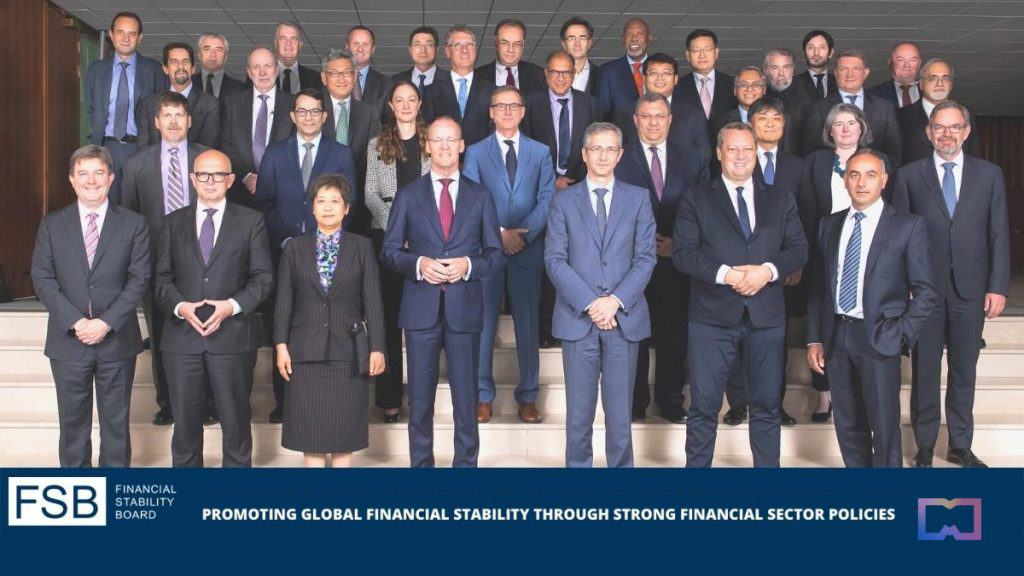FSB and IMF Unveil Joint Approach to Tackle Financial Stability Risks in Crypto-Asset Space


In Brief
The IMF and FSB collaborated to publish a set of recommendations and standards for the crypto space.
The report emphasizes comprehensive regulatory and supervisory oversight for crypto-assets as a baseline requirement.
Some jurisdictions, especially emerging markets, may need to implement additional targeted measures to address specific risks.

The Financial Stability Board (FSB) and International Monetary Fund (IMF) today published a synthesis paper, providing policy and regulatory recommendations for the crypto space.
The report combines the IMF’s macroeconomic research with the FSB’s analysis of financial stability risks related to crypto-assets. It was drafted upon the request of the G20 Chairman and Indian Prime Minister Narendra Modi.
The synthesis paper seeks to offer global authorities guidance in handling the risks associated with crypto-asset activities and markets, addressing macroeconomic and financial stability concerns.
One of the central findings of the report is the importance of comprehensive regulatory and supervisory oversight for crypto-assets. This oversight is considered a baseline requirement to mitigate risks to both macroeconomic and financial stability.
To address macroeconomic risks, the report suggests safeguarding monetary sovereignty, strengthening monetary policy frameworks, managing capital flow volatility, and establishing clear tax treatment for crypto-assets.
Recognizing the global nature of crypto-assets, the report emphasizes the need for international cooperation, especially in sharing information and coordinating efforts to tackle these challenges effectively.
While comprehensive regulatory oversight is essential, the report acknowledges that some jurisdictions, especially emerging markets and developing economies, may need to implement additional targeted measures to address specific risks.
To ensure the practical application of these recommendations, the IMF and FSB have outlined a roadmap.
This roadmap includes plans to strengthen institutional capacity outside the G20, promote global coordination, cooperation, and information sharing, and address data gaps essential for understanding the rapidly evolving crypto-asset ecosystem.
In February, the IMF issued a note to the G20 addressing the Macrofinancial Implications of Crypto Assets. The note expands upon recommendations found in the Elements of Effective Policies for Crypto Assets.
In July, the FSB released a Global Regulatory Framework for Crypto-asset Activities, comprising recommendations for regulating crypto-asset markets and global stablecoin arrangements.
The FSB serves as an international coordinator for national financial authorities and standard-setting bodies. It aims to promote effective financial sector policies that enhance financial stability.
The international body brings together authorities from 24 countries, international financial institutions, sector-specific regulatory groups, and central bank committees. It also engages with about 70 other jurisdictions through six Regional Consultative Groups.
Klaas Knot, President of De Nederlandsche Bank, chairs the FSB. The Secretariat is located in Basel, Switzerland, and is hosted by the Bank for International Settlements.
Disclaimer
In line with the Trust Project guidelines, please note that the information provided on this page is not intended to be and should not be interpreted as legal, tax, investment, financial, or any other form of advice. It is important to only invest what you can afford to lose and to seek independent financial advice if you have any doubts. For further information, we suggest referring to the terms and conditions as well as the help and support pages provided by the issuer or advertiser. MetaversePost is committed to accurate, unbiased reporting, but market conditions are subject to change without notice.
About The Author
Cindy is a journalist at Metaverse Post, covering topics related to web3, NFT, metaverse and AI, with a focus on interviews with Web3 industry players. She has spoken to over 30 C-level execs and counting, bringing their valuable insights to readers. Originally from Singapore, Cindy is now based in Tbilisi, Georgia. She holds a Bachelor's degree in Communications & Media Studies from the University of South Australia and has a decade of experience in journalism and writing. Get in touch with her via cindy@mpost.io with press pitches, announcements and interview opportunities.
More articles

Cindy is a journalist at Metaverse Post, covering topics related to web3, NFT, metaverse and AI, with a focus on interviews with Web3 industry players. She has spoken to over 30 C-level execs and counting, bringing their valuable insights to readers. Originally from Singapore, Cindy is now based in Tbilisi, Georgia. She holds a Bachelor's degree in Communications & Media Studies from the University of South Australia and has a decade of experience in journalism and writing. Get in touch with her via cindy@mpost.io with press pitches, announcements and interview opportunities.





















































